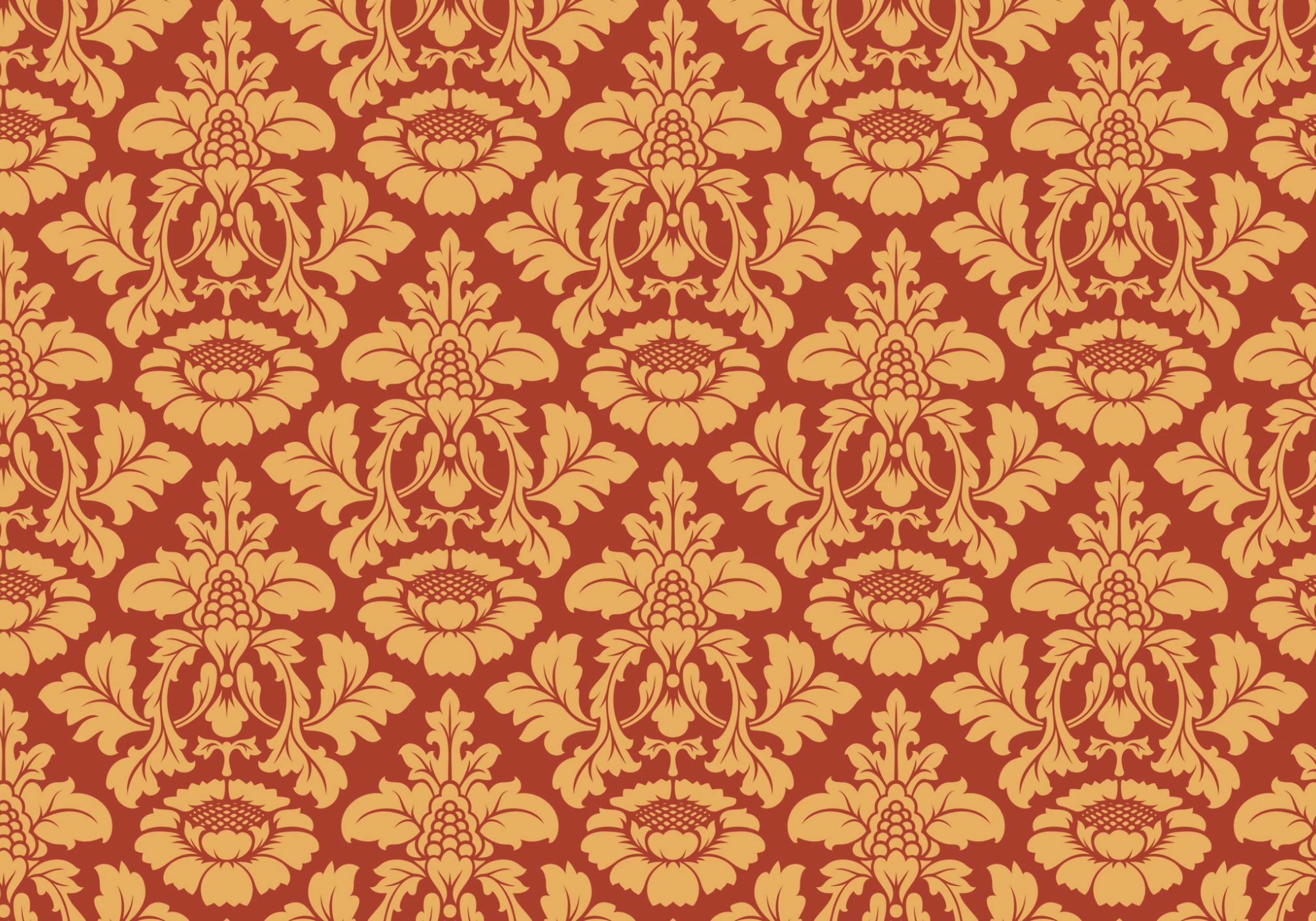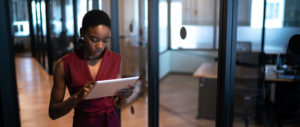
Education must never be a dirty word
Despite the abundance of benefits it could bring to wider society, prisoner education still remains a taboo subject, says James Tweed, the founder of digital learning company, Coracle


Syrian-born businesswoman, Shireen Atassi, stepped away from a career in banking to launch a non-profit foundation in Dubai, promoting Syrian artwork and artists. She talks to David Woods-Hale about her unconventional career path, post-MBA
As part of AMBA’s 50th anniversary celebrations, we conducted 50 interviews with MBA graduates from across the globe, to celebrate the diversity of a global network of post-graduate business students.
These stories showcase bravery, entrepreneurship, achieved ambitions, goals reached, careers changed, borders crossed and boundaries broken down.
But, considering the global geopolitical environment, one story stands out from the rest.
It’s the story of a woman who left her village in Syria – currently the world’s most violent country, according to the Global Peace Index – to complete her MBA, and then moved back to the Middle East in a bid to protect and promote the art and culture of her homeland.
Shireen Atassi, CEO of the Atassi Foundation and an MBA graduate of Imperial College Business School, picks up her tale.
‘I grew up in a little town in the middle of Syria,’ she says. ‘My father was a partner in a construction company and my mother was a gallerist. I graduated from school, spent a year in Switzerland and then moved to Manchester, where I did a BSc in economics. I went back to Syria for three years. By this stage, my parents had moved to Damascus and my mother had another gallery there. I worked in a consultancy firm, and in the evenings, I worked at my mother’s gallery.’
Atassi is thankful for this experience, explaining that it gave her access to the worlds of both business and culture; but by 1996, she was ready to leave Syria for the second time.
‘Everything was too small for what I wanted and the opportunities were too few,’ she says. ‘I had a privileged childhood with access to lots of things, because of who my parents were. This wasn’t a path I wanted to go down and I wanted to open my own doors. I’m not someone who had a plan and worked according to that. All I knew was that I wanted to open doors and tick boxes on my own.’
Atassi opted to do a full-time MBA in London at Imperial College Business School.
She explains: ‘A lot of people who do MBAs don’t know where they’re going. Some people want to change careers – from engineering or medicine to business. Others are like me with no masterplan and want to use the opportunity to regroup and broaden their horizons. Did the MBA give me a masterplan? No – but at the time it wasn’t an issue for me. I wasn’t keen to tell people where I wanted to go.
‘Instead, my MBA gave me a completely different perspective on business. As a consultant, you scratch the surface of business but you don’t lead companies. You talk big, but you don’t get your hands dirty and manage a business. The MBA gave me a well-rounded idea on the elements of how you would manage a business.
‘Back then, if you had an MBA it was either to be a banker or make money. It was almost surreal how students were motivated to think the bigger the words you use and the bigger your salary, the better your programme was.’
She pauses, before adding: ‘In saying that, the year I spent at Imperial was one of the richest in my life, academically, culturally and socially. It opened my eyes to a lot of the business questions that I hadn’t been able to answer when I worked in consultancy. I learned about the nitty gritty of managing and actually being in a business.
‘I met my husband while I was doing my MBA and tried to find a job in London, but had to move to Dubai.’
Atassi received two job offers in Dubai, one from a young venture capitalist and one from established corporation Ernst and Young (EY).
‘I chose Ernst and Young,’ she tells me. ‘It was a safer bet and I already had some experience as a consultant. This seemed the more conventional way to go. My hunch was telling me not to take it – but I did. But Dubai at the time was very young. Being a consultant is only as interesting as your clients and I have to say, my clients were not that interesting.’
In 2000, Atassi applied to work for Mars, which had built a factory to produce chocolate in Dubai; she was offered a different job to the one she applied for, finding herself on the operational side of business for the first time. She found it played to her skills.
‘I think I’m made for that kind of thing,’ she explains. ‘I loved operations and procurement. I managed a number of markets and was in charge of direct and indirect materials.’
In 2007, she decided to set up her own business – a consultancy firm for training and software around procurement and supply management.
‘With hindsight, there were a few mistakes in my execution,’ says Atassi. ‘The timing was wrong. There were a couple of accounts that were close to being signed, but the [2008] recession materialised.
‘This was a male-dominated society. I walked into a boardroom of an oil company in Abu Dhabi to give a presentation on my software and it was a room full of men. One said to me:“where’s your team?” I was offended and replied“I am the team.” Had I taken a partner who was a male, who wore a suit, it might have worked better, but I have no regrets. Part of your success as a person is to accept these facts and deal with them because the world is not perfect.
‘Even if I had set up my company in the US or UK, I should have understood that my clients were not small businesses,’ she continues. ‘They were large corporates and to walk into these big organisations, you need to have an appropriate corporate image. You need to play the game: I had big plans but I didn’t act like a big deal – this had an impact.’
A couple of years later, in 2010, Citibank in Dubai invited Atassi to come on board for six months, a contract that became nine months and then a permanent job.
She says: ‘I loved it and I did damn well with them. I managed the Middle East and North Africa. I also co-managed Africa. My career was going well, but in 2014 it plateaued. I’d had a career path and I was worried about career progression.’
It was at this point that Atassi’s Syrian roots, and her immersion in the arts, through her parents, impacted directly on her career path. Like many ambitious business leaders, she came to realise that ‘sometimes life happens’, drawing you in a particular direction.
Due to the conflict in Syria, her parents had moved to Dubai in 2012. Her mother had been forced to close down her gallery in Damascus and had brought with her a sizeable collection of precious Syrian art and curiosities.
‘I wanted to keep an open mind and an open heart,’ says Atassi. ‘I’d lived with this [art] my entire life. My parent’s home had been a cultural saloon, full of playwrights, artists and moviemakers, so it was something I’d always had in my life.
‘We felt it was appropriate to counteract the narrative about the killing, blood and destruction in Syria, so we decided to put the collection online to show the world that Syria is a lot more than we see in the press. Syria is a multicultural, multi-ethnic, multi-religious country that has existed for thousands of years, in which people have lived together.’
The family had accumulated a sizeable collection of 500 pieces of artwork and decided to create a non-profit foundation to promote the artwork and the artistic production of Syrian artists all over the world.
Atassi explains: ‘We wanted to tell the stories over and over again, because we were privileged enough to do this,’ she says. ‘With privilege comes responsibility towards the environment, family, country and friends.
‘I’m privileged to have been able to go to Imperial College Business School. I felt like I lived in a bubble in Dubai – but I’m a normal person and when I feel strongly about something I find it hard to sit back and watch.’
The Atassi Foundation was incorporated in 2015. Dubai’s legal structure doesn’t allow the existence of not-for-profit organisations, so the company was registered in Lichtenstein and launched in March 2016.
‘It’s just me and my mum,’ says Atassi. ‘We have a small team and we work from home. We do everything from inventory and stock through to curating, marketing, launches, websites and making contacts.’
She adds: ‘I went against everything the Business School taught me and set up the business without a strategic plan. I just needed to start.’
Since its launch, The Atassi Foundation has collaborated with museums and leading art galleries in Dubai, Toronto and London. In Dubai, it produced the biggest Syrian art show of all time and has commissioned research into the Syrian Cultural field.
‘It’s been surreal,’ says Atassi. ‘But now, 14 months after launch, I’m taking a step back.
The first year was great in terms of PR – we set ourselves on the map. Anything that’s happening in the arena of Syrian arts and culture is landing on my lap, so I’m taking a step back, to re-strategise.
‘We need to think about funding,’ she admits. ‘We need to use our budget in the most sensible way. If we spend money in
the wrong place, we can’t replace this, so we want to build funds to do what we need to do.’
Does Atassi feel she made the right choice to forgo financial services for the world of art?
She considers the question carefully. ‘I don’t have a big ego,’ she says. ‘But I was developing this at Citibank – I didn’t recognise myself. I could have gone places with that career, but it felt like I was wearing someone else’s clothes. At the time I wasn’t aware of that. It felt strange. Now, my commissioning committee and my board of directors are my parents and myself. I have teenage children. I’m able to do what I love.
‘I’m telling a story and it can’t get more personal. It’s my life story and the story of my mum’s art business. This is a beacon of culture. I’m talking about my country and I’m telling my story. I’m privileged because I can tell the story, but I’m just one of many people trying to tell it.’
She pauses again before adding: ‘I understand how humanitarian education and human development is a priority. We’re talking about millions of displaced Syrian people and I can’t begin to tell you about the level of hatred this war in Syria has created. It’s like opening a Pandora’s box of evil. But none of this [evil] has any relevance to Syrian people. ISIS has no relevance to us – they’re not home-bred. It’s out of our hands.
In spite of this she adds: ‘It just takes more people to do what we’re doing. I was speaking to a non-governmental organisation in Lebanon, setting up schools in the country. They’re doing marvellous things.
‘When you decide to do something like this – and I can’t decide whether I’m a social entrepreneur or a cultural patron – you’re taking a very uncalculated risk. You have no idea how your career is going to go. If I decided to go back into employment, what would I do? Where has this put me on the career map? I’ve spent 20 or more years working in a corporate environment.
‘No one in this part of the world sets up an art foundation. I didn’t know how it would be perceived. In Syria, entire streets were being wiped out and I was setting up an art foundation, but I’m doing this based on a very important conviction. Art and culture hold a mirror to society; they tell stories. There’s a lot of responsibility on the shoulders of the artists themselves. They bring people together. In the situation we’re in it’s taken a completely different meaning.’
Given Atassi’s experience, her passion for art and the dramatic change from working in banking, to telling the world about the threatened artwork of Syria, virtually single-handedly, does she see herself as part of a new breed of ‘socially responsible’ MBA?
She says: ‘I don’t think there’s ever one-size-fits-all for an MBA graduate. We need capitalists, bankers and entrepreneurs in the world, but from my perspective, Business Schools needs to nurture an awareness among students. I came to an MBA to open doors, not knowing what doors I wanted to open. Business Schools are evolving like everything else.
‘When I went to Business School, the internet wasn’t available to everyone. The world was different, but we have to put everything into perspective in the right setting. Education doesn’t stop when you leave Business School, you always have to be on top of things or you’ll be left behind.’
So what is her advice for her MBA student and graduate peers?
‘In terms of thinking about investment for an MBA student, you’ll ask a lot of questions,’ she says. ‘Will the MBA open your eyes to things you’ve never considered doing before?
‘I think I listened to my head too much and not my heart. When I think about it, it was always open to me to join the art business, but I wanted to tick boxes on my own – it was my head and not my heart. I didn’t know any better then.
‘My advice is to dig deep and question yourself about why you’re doing things. Don’t get stuck in corporate stress – you could realise you’re on the wrong track.’
As our conversation comes to an end and Atassi considers the next chapter of her story, for herself and for Syria, she muses: ‘Where would we be if we weren’t optimistic. I’m not expecting miracles but I’m definitely optimistic.
‘What I’m doing is not selfless – it’s incredibly selfish. I’m buying myself back. I used to cry, but not anymore. I know I’m doing something worthwhile; I’m not changing the course of history; I’m not going to stop the war in Syria. I’m not going to remedy the agony of the mothers, the fathers or the children who have lost it all.
‘What I’m doing now doesn’t just excite me; it gives me the oomph and strength to make this work. It’s more than a challenge. What’s the worst that can happen to me [in Dubai]? We’ll still have food on the table.
‘I owe this to my children. If you ask them, they might not have a Syrian passport, but they’re Syrian. I owe it to me and I owe it to them.’

Despite the abundance of benefits it could bring to wider society, prisoner education still remains a taboo subject, says James Tweed, the founder of digital learning company, Coracle

Is being a startup executive really that different from being a manager or director? Yes, but probably not in the ways you think, says the author of ‘Lead Upwards’, Sarah Brown

Legal structure, documentation and intellectual property. Solicitor and ‘entrepreneur in residence’, Michael Buckworth, looks at three areas that all startup founders need to get right
For questions about editorial opportunities, please contact:

